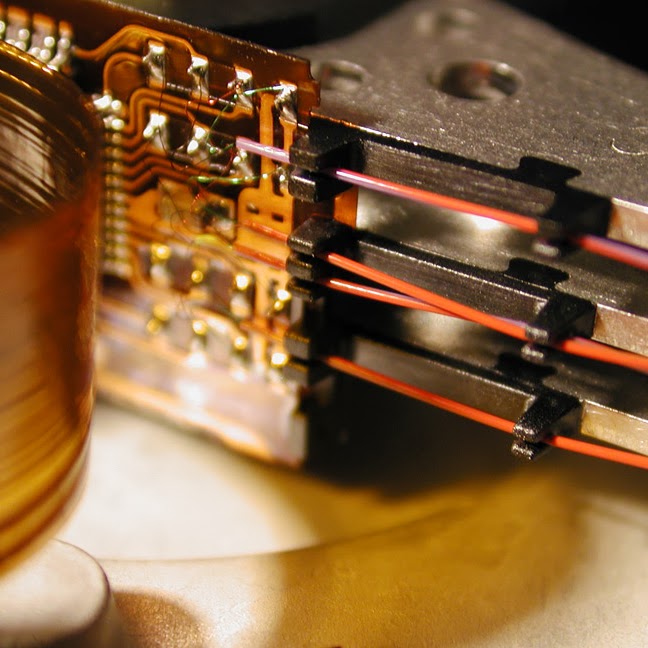False. Mining is what uses electricity (and water) in bitcoin, not transactions. Adding more transactions does not add to the cost. Calculating consumption per transaction is misleading as the two are not related.
What does add to the cost is complexity, and complexity is calculated based on number of miners in the network in order to achieve the sweet spot of 1 block every 10 mins (if i remember correctly). If there’s a lot of competition, each miner will have to use more electricity to win.
Finally someone that get’s it
Ok thats not even remotely accurate. wtf is this clickbait shit. You can argue that bitcoin is bad for the environment but if you’re gonna invent statistics at least make is plausible.
When the alternative to prove of works (vouched by those hoarding compute resources) is prove of stake (vouched by those who can afford to park piles of money), both are suck for their own reasons.
As tradition I won’t read the actual article and only comment on the headline - while BTC is a massive energy waste, it seems unlikely that each transaction would waste so much cooling water. Maybe each mined block, but each block should contain thousands of transactions
ok then just use salt water. You’re welcome nerds!
deleted by creator
These data centers consume water for cooling systems
How does a data center consume water? Doesn’t every liter that enters as freshwater leave as slightly warmer freshwater? What am I missing here?
Swamp coolers.
Fans blow over water to lower the pressure, causing evaporation to occur at room temperature.
Evaporating water absorbs heat from its surroundings without raising the water’s temperature as it undergoes a phase change. It absorbs nearly 20 times more heat than it would from being heated from 50 degrees F to 100 degrees.
Aquafers do not refill as quickly as industry sucks them dry. It’s not just a Bitcoin or even a cloud computing problem, but the author is using this fact to make Bitcoin look even more ridiculous.
Some of the water is evaporated so it doesn’t leave as a liquid.
That’s unlikely in a closed heat exchange system. Maybe some additional evaporation because the water is slightly warmer. But unless I’m missing something, it seems very misleading to suggest that a Bitcoin transaction uses 16 kilolitres because of evaporation. Napkin math, it would require about 10 megawatt/hours of energy to evaporate that much water (please correct me if I’m wrong). I’m not a Bitcoin fanboy, I just don’t like BS.
Some water is used in humidifiers, there are also systems that use direct evaporative cooling where the water is eveporated to cool the hot air. There are probably other ways the water is lost.
AWS’ preferred cooling strategy for its data centers is known as direct evaporative cooling. In this system, hot air is pulled from outside and pushed through water-soaked cooling pads. The water evaporates, reducing the air’s temperature, and the cool air is then sent into the server rooms.
Even if so, does evaporating cause it to exit the water cycle?
These cooling systems remove and release all of the heat produced inside a data center – from servers, IT equipment, and mechanical infrastructure – into the outside environment, through a cooling tower that uses a water evaporation process.
It goes outside and eventually becomes rain.
someone from a totally different thread mentioned that the water can’t stay in the system because of whatever mineral stuff from the cooling pipe/anti-algae/anti-corrosive has to leave the system after certain cycles. So unless you have a treatment plant down stream it’s not exactly “drinkable” freshwater. (and I doubt water regulation would allow that to happen.)
The consume here means that water is not usable for other application. How? I don’t know, maybe it can be used for power wash?
It probably is still a lot easier to make potable than sewer water or even river water though. At lease you know exactly what contamination is in it.
I agree, it would eventually have it’s own ecosystem around that water usage if “fresh” water or not really drinking water related use is required. At this point I think it’s just cost related, cheaper just to dump into ocean.
Water used to cool data centers is either consumed, meaning it evaporates into the atmosphere via the data center’s cooling towers or discharged, as industrial wastewater, usually to a local wastewater treatment plant.
It can’t just be dumped into a river, has to go to a sewer treatment plant.
edit: They do recirculate it, but it eventually needs to be replaced. And some facilities have treatment plants on site, so doesn’t necessarily needed to go to a sewer treatment plant.
I don’t understand some things in the water consumption.
Why do they need to humidify the air for the datacenter?
Why is there water consumption for cooling? Aren’t they recirculating water used for watercooling? Or are they using f*ing tap water then throwing it out?
Water for electricity production, kinda, yes. Could be indirectly attributed to their water consumption as they are using the electricity produced by the sources using water.
Why do they need to humidify the air for the datacenter?
Static electricity. Humidified air dissipates static charges before they can build up enough to arc and cause damage to sensitive components.
Yeah and too much is bad too, because it can condense on coolers. I’ve been told it’s also bad for bearings in HDDs when it’s too low.
Of course in a datacenter being low on humidity is a much more likely thing as there is nothing to emit humidity (e.g. humans).
I worked in a “datacenter” where the humidifier function for the HVAC unit was turned off because it leaked under the floor into an adjoining office when it was trying to humidify. Management refused to fix the unit due to the cost, and saw no issue with running the room with relative humidity in the teens all winter. Madness.
If we didnt run a dehumidifier the humidity in my house would stay above 80% most of the year. We have a decently large dehumidifier and by itself it cant get it below 45%. But 45% is much better then 80+% so it could be worse
Yes of course but you have humans in the house who exhale H2O all the time. A datacenter doesn’t have many of those (per square metre or foot or whatever you measure your datacenters in)
The vast majority of it definitely comes from the area in which I live.
Temperature is the more important factor. Even if the ambient air is at 100% humidity, if it is very cold, the relative humidity after heating it will be very low.
That low? Wow… Your skin must have got chapped every time you went in there.
Bitcoin is fake so fake story of fakeness.
Not only is the science underlying all these findings completely non-existent, they only “guesstimate” what the water usage of what every thing that uses water is; then blindly divide that by the transaction volume per time period.
Not only is that method highly flawed; it’s incorrect. Computers do more than mine crypto; and 1 transaction typically costs not even 1 tenth of a percent of most miners’ overall computer resources. This is due to the fact that many miners are utilizing either a GPU or FPGA style device to power optimize and optimize the mathematics necessary to secure a transaction.
That might have been true a decade ago. But GPUs and FPGAs have long been obsolete for mining Bitcoin.
Mining is happening on custom silicon in large-scale operations. They specifically observed several of those large-scale operations in multiple nations and extrapolated out. I don’t see how that methodology is flawed.
Not even a mention of lightning? I have no idea if it works as I’ve been hearing both yes and no for several years, but writing such an article without mentioning what at least theoretically would be the solution just seems bad.
Last I saw Lightning was pretty much DOA, it’s been around for many years and almost nobody’s using it. At the time I was checking there was an order of magnitude more activity transferring Bitcoin on Ethereum using WBTC tokens than using Lightning on Bitcoin itself.
Yeah I made a bitcoin payment recently and I was very suprised to learn that my wallet (CakeWallet) doesn’t support Lightning payments at all. So I had to do it the old way.
Very weird because bitcoin advocates always pushed it as the holy grail. But I guess bitcoin as an actual payment method is just really too niche for it to take off.
I recall back when Lightning was first come up with thinking how incredibly hacky a solution it was, full of awkward workarounds for the limitations of Bitcoin’s blockchain. A few small changes to the blockchain would have made it so much simpler and more robust, but at that point Bitcoin’s immutability had become such a fundamentalist religion that any such changes were absolutely rejected. They wouldn’t even fiddle with the block size, let alone consider expanding its scripting capabilities.
Then Ethereum came along with the exact opposite philosophy, it’s willing to continue making changes to the foundation layer with the overall goal of making Ethereum more functional for diverse applications. Ever since then it’s just been a slow transition of everything useful moving over to Ethereum and Bitcoin becoming ever more insular and obsolete by comparison.
It seems like I haven’t thought about Bitcoin in years. When this article came up it took me a moment to shift the mental gears and go “oh yeah, that. I guess it’s still around.”
See, that’s another “no”, but then I read just as convincing “yes” posts, and I just don’t care enough to make my own research, so I have Schrödinger’s lightning network ;)
But any way, it would have to be mentioned in a serious sticker.
i strongly urge skepticism when reading articles about the environmental impacts of bitcoin. I am not saying that bitcoin is a sensible use of resources - rather that the claims made about the environmental impacts are often overstated and based on models extrapolated to absurdity. For example, see https://doi.org/10.1038/s41558-018-0321-8 where Mora, Camilo et al suggested that “Bitcoin Emissions Alone Could Push Global Warming Above 2°C”. Then read Implausible projections overestimate near-term Bitcoin CO2 emissions by Masanet et al.
Again - the environmental impacts of cloud computing in general and bitcoin in particular are something we should be concerned about. But there are a number of researchers who have made wild claims that should be treated with a critical eye.
(Checking if outbound federation is back)
Yeah, if they had said 10 gallons, I’d buy that, but a whole swimming pool of water would be worth far more than a transaction fee I’d expect.
Yeah, generally miners will set up in places with cheap electricity. And excluding places like Azerbaijan, those sources are generally renewables.
Yeah. Right now, the cost of a Bitcoin transaction is around $65 US. That price includes all of the expenditures that the miners have made on resources (electricity, water, rental costs for the space they’re using, hardware depreciation, etc.), as well as whatever bit of profits it takes to keep miners in business. That puts a cap on whatever environmental impact the transaction is having.
So if it costs $65 for a transaction then why isn’t that the transaction fee? people would be loaing money if cost is more than the fees
Bitcoin is inflationary, it’s generating new Bitcoin with every block and issuing that to the miners. That new Bitcoin combines with the transaction fees to pay the miners.
So mining is the bulk cost not the transactions. because my last bitcoin fee was like $10 or something
Yes. If you’re wanting to know how many resources mining a transaction takes, that’s the value you need to look at. The block reward effectively goes into subsidizing the transaction fees that are being paid.
Bitcoin is deflationary. There is a hard limit on the total number of bitcoins that will ever exist. Every so often, the reward for mining a block is halved. Eventually there will be effectively zero reward for mining at all.
Maybe in the long run. However, when you want to actually calculate how much each transaction costs, you need to account for the fact that right now Bitcoin is inflationary. It won’t stop issuing new tokens until around 2140 AD, assuming no hard forks happen to modify that issuance strategy in the meantime.
It’s a necessary sacrifice to push more ponzi schemes
It’s actually a scam pushed by Big Water to get you to use more water and line their pockets.
The people that care about this sort of thing are incapable of fixing it- and the people that could fix it- don’t care.
My advice? Get used to it. This is the new normal.
Or make it illegal. Why waste so many resources on something that doesn’t produce any value for society?
I do wonder how this compares to current payment processors (Visa, Mastercard, Paypal, etc)
What I found… 1 Bitcoin transaction takes ~700 kWh of power, where as 100,000 Visa transactions use ~150 kWh.
https://www.statista.com/statistics/881541/bitcoin-energy-consumption-transaction-comparison-visa/
But does it account for manufacturing of the plastic cards, delivering it to the user, and the added expense of the extra weight when carrying it around? /s
I don’t think that’s really equivalent. They are averaging the energy usage of mining and usage across the number of transactions. The overwhelming majority of that energy would be on mining.
What is the equivalent of mining in terms in VISA transactions? How much energy does that use? What is the marginal cost of a Bitcoin transaction? If you’re including Bitcoin mining in your per-transaction costs, shouldn’t you include the entire operating costs of VISA, along with the partners they rely on like banks, mints, and even physical mines?
Bitcoin is not a 1:1 equivalent of anything in the traditional financial world, so coming up with a meaningful comparison is difficult. It’s a little bit currency, a little bit transaction processing, a little bit “mining”, and a little bit banking. Despite the hype, I don’t think it’s a full replacement for any one of those things.
You can’t have a transaction without mining. Mining is the work done to solve a batch of transactions, so the exact cost of a transaction is easy to determine provided that you don’t include the cost of plant (buildings and IT to run the miners, though this is usually very minor compared to the actual calculation consumption). Each block contains (typically) between 3000 and 4000 transactions and is solved every 10 minutes. As of today, it takes 2.6GWh to solve a block, given the current number of miners (137TWh/yr per https://digiconomist.net/bitcoin-energy-consumption), which is 744kWh per transaction at 3500 transactions per block.
The cost of a Visa transaction is more difficult because there are people involved and other plant costs (buildings to house the people who work for Visa). The actual cost to process a Visa transaction, in direct transactional power usage, is trivial because a Raspberry Pi can “process” hundreds of thousands of transactions a second locally - it’s literally a couple hundred bytes of login/query/reply data, and adding or subtracting from a ledger which is mirrored to distributed servers. Distributed across a server with enough transactions to keep it busy it’s probably a few hundred milliseconds on 1/8 of a 50W processor - call it 0.001Wh at the server, which is the equivalent of the 700kWh per bitcoin transaction. If we say that there are 10 machines all doing the same virtual transaction on each physical transaction (incl. POS, backup, billing, etc) and we figure a 5:1 cost of total power (a/c, losses, memory, storage) then we’re all the way up to 0.00005kWh (0.05 Wh, or 180 watt-seconds) per transaction. That means that the overall cost for visa to process your charge is 1.5kWh/0.00005kWh for the computers or 30,000:1 due to humans being involved in the process.
Here’s the thing, though: Bitcoin gets harder (more compute intensive) as time goes on, and the rate of increase is faster than the ability to solve, on a Wh basis. IE - Bitcoin transactions will get more expensive over time unless bitcoin changes their code - and there is always resistance to that because there is a financial disincentive to reduce the work in Proof of Work systems. This is mitigated on other blockchains by using Proof of Stake, but that has other implications. Visa, otoh, is taking advantage of AI and drops in processor and storage costs to lower their per-transaction cost because there is a financial incentive to reduce processing costs as the fees charged are fixed (nominally 3% of the transaction cost) and anything left over is profit.
Bitcoin transactions will get more expensive over time unless bitcoin changes their code
other events could precipitate a decrease in power used per bitcoin transaction.
Again, it would take a substantial change to the code or reality. The options are to change the block size (more transactions per block), alter the difficulty curve (which is intended to limit growth in the limited bitcoin supply), alter the way blocks are solved (massive theoretical mathematical breakthrough or, possibly, a move from asic to quantum computing), or switch away from proof of work. The first increases the storage of the blockchain (substantially for a substantial reduction), rewrite - and get approval - to change the difficulty steps which had been a hallmark of the system, the third is magical thinking, and the fourth completely undermines the egalitarian ethos of the coin.
I’ve heard of no substantive move on any front to alter the plan because, for now, it working. And the true believers are generally libertarians who have faith that market forces will correct any shortcomings organically. This usually results in everything working perfectly right up until it doesn’t, at which point the wheels come off and the bus slams into the class of kindergarteners crossing the road.
the network is self-adjusting. if hash power begins to decrease, the network will decrease difficulty to maintain the target of 10 minute block times. lots of things could lead to decreased hash power. the whole network could be run with a cleverly configured raspberry pi
the whole network could be run with a cleverly configured raspberry pi
Which would defeat the entire purpose of a distributed blockchain. I’m ribbing you, of course, on that ;-) Bitcoin was not built for efficiency and the very basis of distributed proof of work trades efficiency for security. The more “successful” it gets, the larger the incentive to waste power in a fight to win each block reward becomes - by design.
It seems I have fundamentally misunderstood how bitcoin mining works. Thanks for the correction.
I’m having a hard time wrapping my head around this. If the marginal energy cost of a transaction is 744kWh, shouldn’t the transaction fees be astronomical?
Yeah, at current electricity prices where I live that would be just under £300,000 per transaction. Doesn’t seem right.
Edit: as pointed out, I was out by a factor of 100. Electricity costs 40p per kWh here.
You sure you have the magnitude right on that? From a quick search, I think it should only be about £200 in e.g. London, with similar prices in big cities across the US. I thought those were relatively high prices to begin with.
You’re right. It was late.
Unless I am mistaken, the total number the other comment is raising is how much power the entire network spent calculating the transaction, not how much the winner (the one who got paid out) spent. You calculate the energy consumption of the entire network because that power was still spent on the transaction even if the rest of the network wasn’t rewarded. I have no idea if the numbers presented are correct but the reasoning seems sensible. Maybe I’m wrong though. :)
The reward for mining a block is over a quarter of a million dollars these days. $250k / 4k transactions = apx $62.50 per transaction. Around $8 is from the transaction fee from the sender, the other $54 is from the block reward minted out of thin air.
Even when you throw in the entire electrical consumption of Visa down to the last lightbulb and ATM you’re going to be dwarfed by bitcoin. Mining is inherently necessary for bitcoin to process and records transactions, but even if it wasn’t the scale of waste just kills bitcoin. Running a few office buildings to serve hundreds of millions of people just can’t compete on a per transaction cost. And comparing the energy needed of one way to send money online to another way to send money online seems fair enough to me.
For scale, in an electric suv like the Ionic 5, 708kwh is enough to drive from California to Florida, and that’s necessarily for every single transaction.
Well my understanding is that visa, MasterCard ECT. Are far more efficient in terms of energy and transaction time when compared to Bitcoin and Ether. Visa uses about a quarter of the power per 100,000 transactions.
So I would assume that would mean fewer data center computers to cool and therefore less water used per transaction
By design.
Bitcoin has pretty much no incentive to make the transactions efficient. The load is distributed to other people (their customers), and their biggest customers have a perverse incentive to want the transactions to be as inefficient as possible in order to discourage competition.
Vista et al have to pay for their own transactions, so keeping it light is simple cost savings and totally rational.
Most importantly, VISA, MasterCard, etc. are far more profitable for VISA, MasterCard, etc. stock holders.
Sorry, I’ve not kept up to date with crypto, but wasn’t ethereum due to move from computational mining to staking? Wouldn’t that be a lot more efficient, or is that not a thing yet?
ethereum moved to proof of stake sometime back. BTC and I think a few other (very) minor cryptos still use proof of work which is where the significant power usage goes. Not something I track but I believe the vast majority of non-BTC cyptos are proof of stake or something not proof of work anyway and BTC is the only one that uses proof of work and is used at all. That might not exactly be technically correct but it is in the practical realm.


















